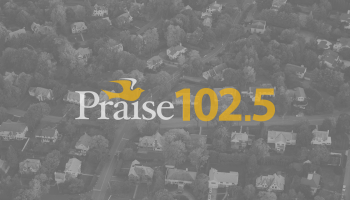By Leah MarieAnn Klett of christianpost.com
Francis Chan has said that humility — coming before God with a proper understanding of His greatness — is the key to improving one’s prayer life and developing a deeper, more intimate relationship with God.
In a recent video posted on The Gospel Coalition website, Chan, author of Crazy Love and founder of We Are Church, responded to the question: “What’s one practical thing I could do to improve my prayer life?”
“Be humble. Seek humility. Humble yourself,” he responded, advising believers to “think about that scene in Revelation 4 and 5,” where the Apostle John saw a blinding vision of part of the celestial kingdom.
“Do I dare approach that throne?” Chan continued. “And yet now Scripture says I can. Who am I to come before that throne?”
The pastor pointed out that the Scriptures say, “We do not know how to pray as we ought,” (Romans 8:26); therefore, the “Spirit Himself intercedes for us with groanings too deep for words.”
“Our response of humility should sound something like this: ‘I’m coming before Him? The King? I don’t even know what to say, but He says that I can pray in the Spirit, and the Spirit is going to intercede for me and through me. And, oh God, this is insane. OK, I’m going to come before you. I’m going to need the Holy Spirit. God give me the words to say,’” Chan continued.
Unfortunately, most people don’t understand what an honor it is to come before the throne of God, the pastor lamented, adding: “Instead, I hear people that almost act like they’re doing God a favor by showing up to a service.”
“We’re so used to people begging you to show up for a prayer meeting,” he charged. “So when they finally attend, everyone is patting them on the back, and they end up feeling pretty good about themselves. We can’t approach the throne like that.”
“We must come humbly before God’s throne,” he concluded. “Just think to yourself, ‘Are you kidding me that I get to do this right now? Unreal. I’m about to come before him in prayer!’”
A 2017 survey from the Barna Research Group found that American adults who pray with regularity do so with varying motivations, the most common being to offer “gratitude and thanksgiving” (62 percent). An equally popular prayer incentive is the “needs of their family and community” (61 percent), followed by “personal guidance in crisis” (49 percent).
Chan often addresses the subject of prayer and stresses the importance of maintaining a posture of humility when coming before God.
Previously, he warned that too many Christians today are praying the wrong way, focusing on themselves rather than on God’s mission.
When approaching God in prayer, don’t just go and start talking, Chan advised; rather, come silently, come slowly, and be careful.
“As I look at the way the disciples prayed back then and as I look at the way Jesus taught us to pray, I realize it’s a lot different from what I was taught,” he said. “Prayer to them was really different, they asked for things that were different from what I typically asked for.”
“When you pray, is your desire the same desire as God’s?” he asked. “Are you after this Kingdom? Are you after this mission? Or are you after your own kingdom?”
God wants people who are “committed to Him because He wants to strengthen them and answer their prayers,” the pastor said.
“He’s longing to show off His power but maybe we haven’t seen His power because we haven’t been praying for the things that He wanted us to pray for,” Chan contended, concluding that if Christians began to pray for the things that God cared about, the church would begin to see the supernatural just like the apostles did.
















